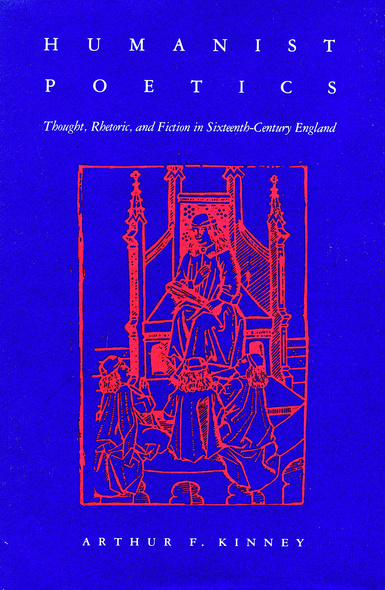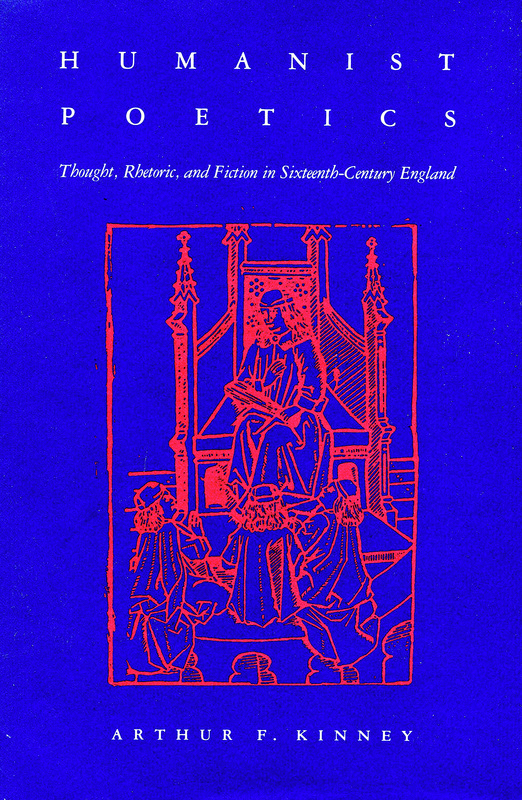Humanist Poetics
Thought, Rhetoric, and Fiction in Sixteenth-Century England
University of Massachusetts Press
This important contribution to the study of English Renaissance culture redefines the humanist movement, employs humanist rhetoric in new ways, and argues that English fiction in the sixteenth century should be seen as a major genre with its own strategies for the imaginative artist. Arthur F. Kinney argues that the main purpose of Renaissance humanism was the cultivation and perfection of the individual and society by the use of rhetoric—by persuasion. Humanist poetics, then, is the poetics of rhetoric: the attempt to fashion the self or the reader by a fiction that employs rhetoric's means.
By tracing classical resources and the intertextuality of major English works from More's Utopia to Lodge's Rosalynde and Nashe's Unfortunate Traveller, Kinney not only locates basic Elizabethan habits of mind but also shows where the roots of the English novel may ultimately lie.
By tracing classical resources and the intertextuality of major English works from More's Utopia to Lodge's Rosalynde and Nashe's Unfortunate Traveller, Kinney not only locates basic Elizabethan habits of mind but also shows where the roots of the English novel may ultimately lie.
This is, I think, a very bright piece. Unlike the work of one or two recent academicians, it acknowledges the merging of rhetoric and poetics with its recognized fictive basis; in showing how the reader is compelled to reach a conclusion, it explains in addition how Elizabethan fiction could 'outstretch its place, its age.'—Elizabeth Story Donno
'Kinney manages to connect a vast array of different materials—school records, classical and Renaissance treatises on rhetoric and related subjects, Renaissance poetry and fiction—and to make the connections not only valid but mutually illuminating. The readings of individual authors are always solid and light up the texts.'—Walter R. Davis, Brown University
'Kinney already has considerable accomplishment to his credit, both as editor and author, but this is surely his best.'—James J. Murphy, University of California, Davis
Arthur F. Kinney is Thomas W. Copeland Professor of Literary History at the University of Massachusetts Amherst.





